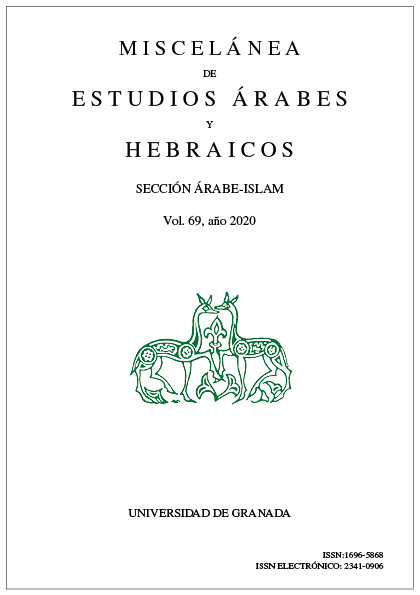The reception of humor based on cultural elements in the Spanish translation of the narrative of Naguib Mahfuz: empirical analysis focused on the translation techniques
DOI:
https://doi.org/10.30827/meaharabe.v69i0.1047Keywords:
Naguib Mahfouz, Humor, Cultural elements, Translation techniques, Empirical analysisAbstract
This paper presents an empirical analysis conducted on the reception of humour based on cultural elements in the Spanish translation of the novels of Naguib Mahfuz. The study was designed to measure the perception of humour in the translation as compared to the original and to reveal, at the same time, any possible connection between the percep- tion of humour and the degree of disclosure of information related to cultural elements, through the use of certain translation techniques. Four questionnaires consisting of 10 segments extracted from the original version and their corresponding real and manipulated translations were submitted to the judgment of native speakers of both languages. The per- ception rate of humour achieved in real translations is no higher than 30%. The findings also indicate that the disclosure of pertinent information can improve the results. But doing so has little effect, because it makes the complicity between sender and receiver disappear from the text, and that complicity is essential for the perception of amusement.
Downloads
Downloads
Additional Files
Published
How to Cite
Issue
Section
License
The authors publishing their work in this journal agree to the following terms and conditions:
1. The authors retain the copyright and give the journal the right to be the first publication of the work and also to be licensee under a Creative Commons Attribution License which allows others to share the work, provided the author of the work and the initial publication in this journal are acknowledged.
2. Authors may make additional agreements separately for the non-exclusive distribution of the version of the work published in the journal (for example, putting it in an institutional repository or publishing it in a book), with acknowledgement of its initial publication in this journal.
3. Authors are allowed and encouraged to electronically disseminate (for example, in institutional repositories or on their own web page) the published version of their works (publisher's post-print version) or, if not possible, the author's reviewed and accepted post-print version. This is to facilitate productive exchanges, and allow for earlier and greater citation by third parties of the published works (See The Effect of Open Access).
4. The journal accepts no responsibility for the opinions expressed by the authors.



















